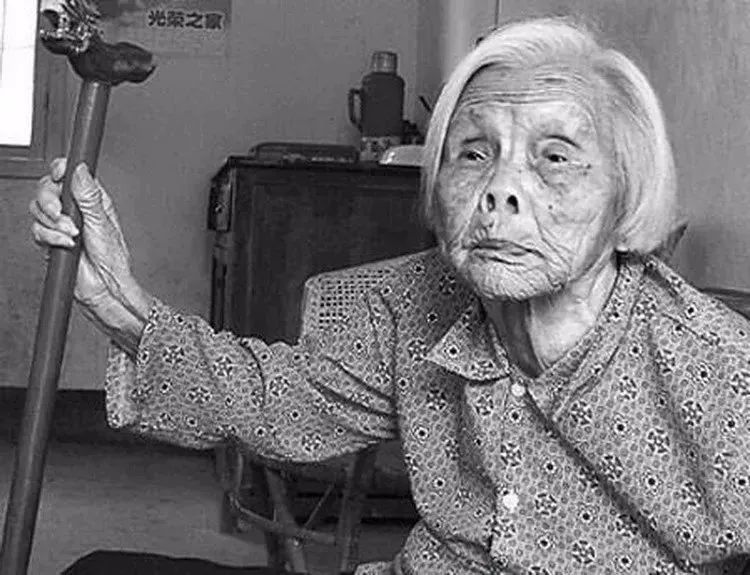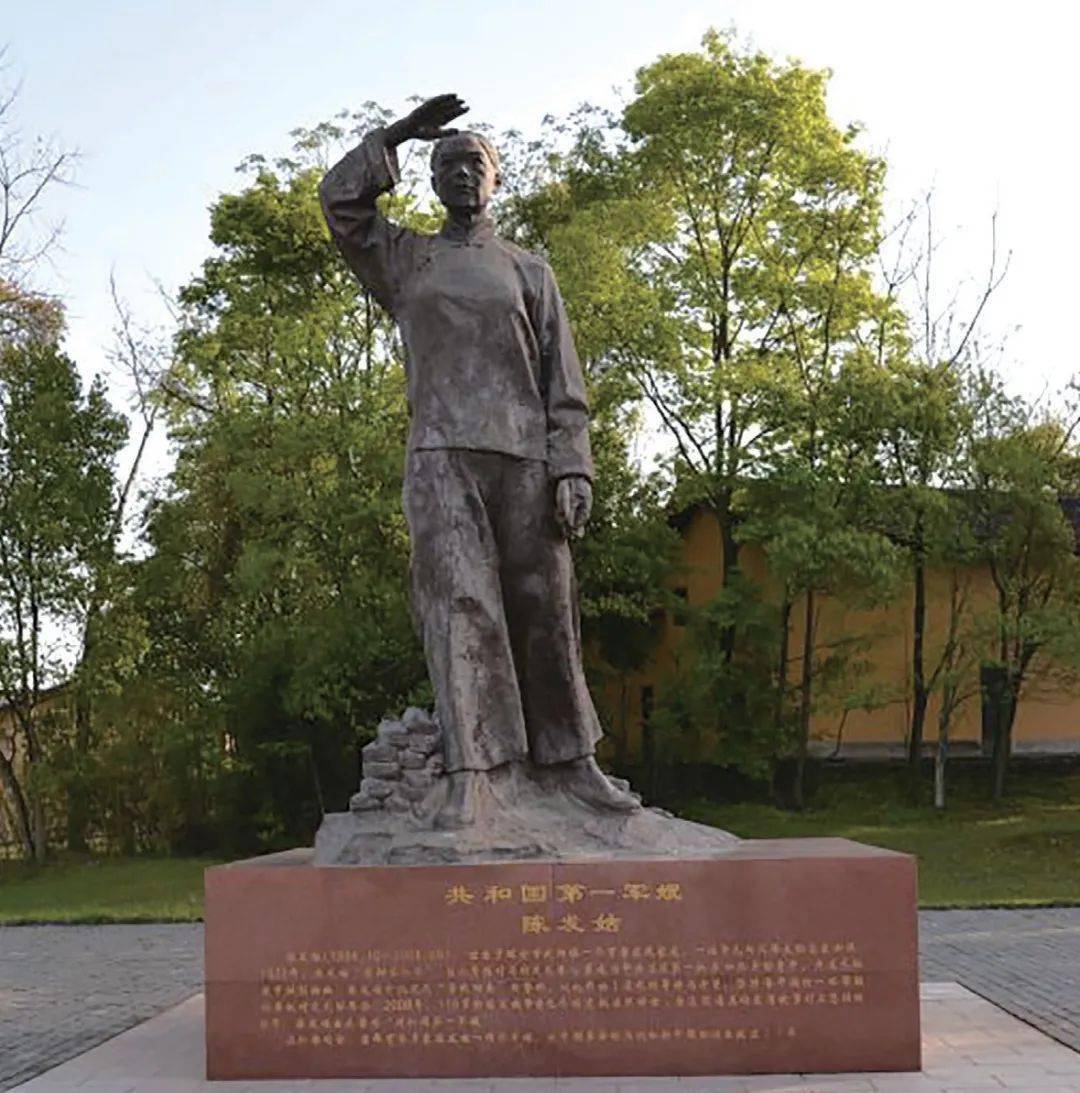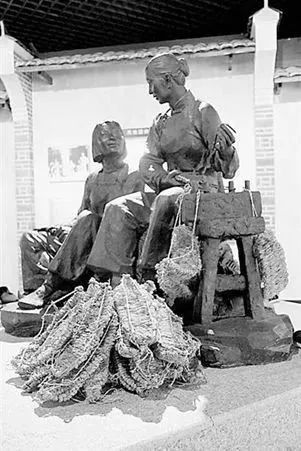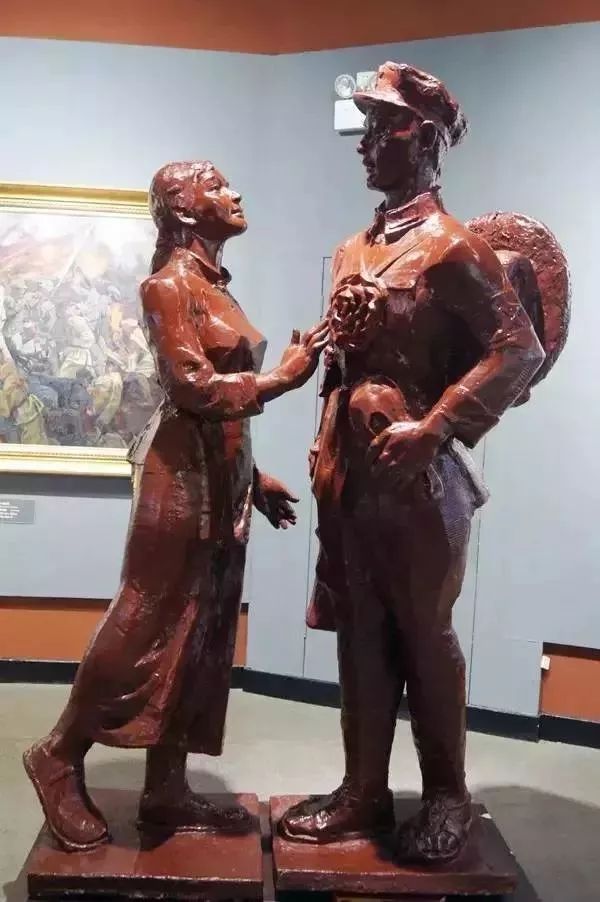教师党员瞿慧为您推荐《有一种守望,叫等待》

推荐人:瞿慧
推荐理由:陈发姑,一个普通的不能再普通的农村妇女,七十五年如一日,坚守约定,天天盼望着红军丈夫的凯旋而归。她的坚守看似并无结果,但那一句低沉的 “等我回来”却成为受苦受难的中华民族重新迎来民族解放的信念和力量。
有一种守望,叫等待
A Love Called Waiting
谁也不记得,这位白发苍苍的老人往村口那条路上,张望了多少回、翘盼了多少年,但是村里人都知道,她在望什么、盼什么。
No one remembers how many times and for how many years the grey-haired lady has been looking out at the end of the road to the village, but every villager knows what she is looking forward to.

老人年轻过,貌美过,幸福过。19岁那年,她从下山坝村嫁到了上山坝村。1931年的9月,毛泽东、朱德指挥苏区军民粉碎了国民党蒋介石的第三次围剿,巩固了瑞金中央苏区,当地百姓纷纷报名当红军,她的男人也参加了革命。3年后的1934年10月随中央红军向西突围,开始了长征。
The old lady was once young, beautiful and happy. At the age of 19, she got married from Xiashanba Village to a guy in Shangshanba Village. In September 1931, Mao Zedong and Zhu De commanded the army and the local people in the Soviet Area to smash the third encirclement and suppression by the Kuomintang led by Chiang Kai-shek, which consolidated the Central Soviet Area in Ruijin. The local people were eagerly enrolled in the Red Army one after another, and her husband also became one soldier in the revolution. Three years later, in October 1934, with the Central Red Army’s marching westward, her husband began the Long March.

十送红军,满腹酸楚。夫妻一别,不知来日。这位爱唱山歌的村妇,甜美的歌声渐渐变低沉了,她一直信守着男人那句低沉的“等我回来”的约定。战斗不断,伤亡不止,一天两天,没有踪影,十天半月,没有音讯,女人的心在煎熬,在等待;红军走了,白军来了,把红军家属的她打得皮开肉绽、死去活来,她在等;胜利了,解放了,同村的战友玩伴回来了,男人还是音讯杳无,她在等;组织上派人捎来话,说她的男人在长征途中牺牲了,她依然在等。
It is full of bitterness to farewell to the Red Army, for none of this couple know when they would meet again after this parting. The village lady loved to sing folk songs, but day after day, her sweet voice gradually became low, as low as her husband’s promise of “waiting for me to come back”. The fight was continuing, and casualties never decreased. For a couple of days, there was no trace. For a half of month, there was no news. Deep in her heart, she was suffering and waiting. The Red Army had left, but the White Army came. As a family member of the Red Army, when she was beaten with wounds and scars all over her body, she was still waiting for her husband; when the comrades and playmates in the same village came back after victory and liberation, no news was brought back about her husband, but she was still waiting for him; when the party organization sent a message that her husband had sacrificed on the Long March, she was still waiting for him.

她执拗地相信,她的红军男人没有死,会忽然回家来找她,怕男人找不到家门,女人几乎天天向男人离家的路口眺望。从青丝明眸到白发老眼,直到望穿双眼,两目失明,她还在等;一听说村里来了客人,她都要凑上去,把她男人的名字说一遍,把心里久积的思念说一遍,把重复了不知道多少次的请求,再说一遍。
She stubbornly believed that her Red Army husband was still alive, and would come home someday to be with her. For fear that he might not find his way home, the lady spared no single day looking out at the intersection where her husband had bidden farewell to her. She was still waiting from young to old, until she wore out her eyes and became blind. As soon as she heard that there were guests coming to the village, she would come closer to call out her husband’s name, express her long-term missing, and repeat her requests again and again.

从小女子到老女人,她不但在等,还一面埋怨、数落、嗔怪,一面想着男人那双笨脚的模样,编织草鞋,等他回来试脚……
From a young girl to an old lady, she was not merely waiting, but also complaining, blaming, thinking about the shape and size of the man’s stupid feet, weaving straw sandals, and waiting for him to come back and try them on.
一等一年,一年一双,终于等不下去了。
Year after year, she was waiting and every year she would weave a pair of new straw sandals for her husband. Finally, she couldn’t wait on.
老人去世的时候,人们数了一下她堆放在房角的遗物——整整75双草鞋!这位老人,叫陈发姑,她的男人,叫朱吉薰,红军战士……
When the old lady died, people counted her belongings which piled up in the corner of her room—a total of 75 pairs of straw sandals! The old lady’s name is Chen Fagu and her husband, Zhu Jixun, was a soldier of the Red Army.
有一种初心,叫守望;有一种守望,叫永远;有一种永远,是75年。
There is a kind of original belief called waiting; there is a kind of waiting called “forever”; and there is a kind of “forever” which means “one’s life time”.

 学校首页
学校首页